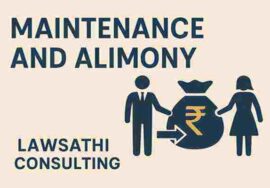Judgment On Divorce
Mayadevi v. Jagdish Prasad (2007) Mental Cruelty judgment for Divorce
This judgment elaborates on what constitutes mental cruelty under the Hindu Marriage Act, 1955.
What is Cruelty to Husband under the Hindu Marriage Act, 1955?
Section 13(1)(i-a) of HMA provides cruelty as a ground for seeking divorce.
Cruelty, as defined in the Act, includes both physical and mental cruelty.
Any party, whether husband or wife can seek divorce under Section 13(1)(i-a) of HMA.
Landmark Cases:
Mayadevi v. Jagdish Prasad (2007)
The case involved a wife, married in 1993, accused of frequent money demands, threats, and cruelty towards her husband and children.
She allegedly abused, threatened, and ultimately caused the death of three children.
Despite pending criminal appeal, courts found her guilty of mental and physical cruelty, granting the husband a divorce decree.
It provided clarity on assessing cruelty in divorce cases.
Cruelty in Matrimonial Disputes
Cruelty under matrimonial law may be physical or mental.
Physical cruelty involves direct, tangible evidence of acts causing bodily harm or physical suffering.
Mental cruelty, however, may not always have direct evidence. It is to be assessed on the basis of:
the conduct of the spouse,
the impact of such conduct on the other spouse’s mental health,
and whether such conduct causes reasonable apprehension that it is not safe for one spouse to continue living with the other.
Courts must carefully probe into the mental process and cumulative effect of the incidents, rather than relying only on isolated acts.
Mental Cruelty judgment for Divorce
Disclaimer: This article is for educational and informational purposes only. It provides a general understanding of legal remedies but does not constitute legal advice. For specific legal guidance, you can consult a legal expert.







